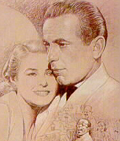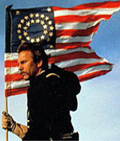|
Study Guide -
Crash (2004)
Director : Paul Haggis
Stars :
Sandra Bullock .... Jean Cabot
Don Cheadle .... Graham
Loretta Devine .... Shaniqua
Matt Dillon .... Officer John Ryan
Terrence Howard .... Cameron
Ludacris .... Anthony
Ryan Phillippe .... Officer Hanson
Larenz Tate .... Peter
Preparation :
Read the Roger Ebert and Guardian Review
Historical/Social Significance :
"Not many films have the possibility of making their audiences better people. I don't expect "Crash" to work any miracles, but I believe anyone seeing it is likely to be moved to have a little more sympathy for people not like themselves. " Roger Ebert
"Basically, to spark conversation and get people’s attention. We wanted to cover one of the more controversial issues in this country (race relations combined with the social class system). That is why the dialogue was as direct as it was. We didn’t want to wrap it up in a nice little box. It is designed to hit people across the face and not apologize for it at all." Brendan Fraser:
Synopsis :
Racism rears its ugly head in modern day L.A.
Guided Questions for Viewing :
Assessment questions will be based on the following :
- Why is the film titled “Crash?” Is there a literal reason and a metaphorical reason for the title? Please explain.
- What is a protagonist? Who is/are the protagonist(s) of Crash?
- What is meant by the expression about a story: “redeeming character?” Was there a redeeming character in the film? If so, who was it? (or, who were they?)
- What social issues or social problems did you identify in Crash? How were they represented?
- It’s not unusual for “stories” to contain a message from the writer/creator, etc. to the reader/audience. What, if any, was/were the message(s) of Crash?
-
Don Cheadle's character says in the opening scene, "In L.A., nobody touches you…I think we miss that touch so much that we crash into each other just so we can feel something." Comment on this statement with reference to the film.
-
At the beginning of their classic 1963 sociological work on ethnicity in the United States, Beyond the Melting Pot, Nathan Glazer and Daniel Patrick Moynihan wrote: 'The point about the melting pot is that it did not happen. At least not in New York and, mutatis mutandis, in those parts of America which resemble New York.' Comment on this statement with reference to the LA you saw in Crash.
Sources:
Ebert, Roger. "Crash" rogerebert.com
|



